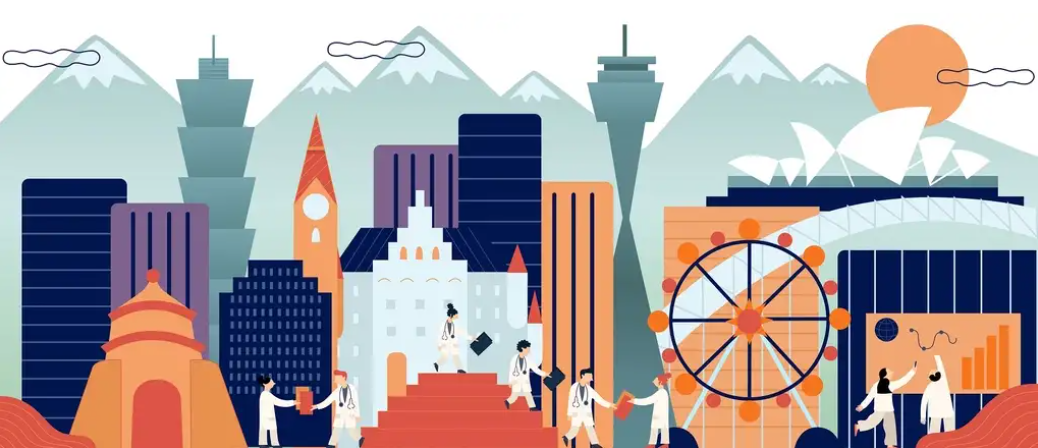This is a republication of the article “Planning for the future: a new framework for improving health outcomes worldwide”, with the title above. The article is preceded by an Executive Summary by the Editor of the Site.
Roche
October 10, 2022
Executive Summary:
Joaquim Cardoso MSc
Health Transformation Institute (HTI)
October 13, 2022
What is the opportunity?
- Advancements in science, data and technology are driving progress in personalised cancer care, …
- … but widespread access and long-term sustainability depend on integrating innovation into existing healthcare pathways.
- Progress in science, data and technology is making it possible to advance this tailored approach to care like never before, particularly in the field of oncology.
What is the promise? What is the Vision?
- Personalisation of healthcare promises a fundamental shift from treating disease to delivering the best possible care for each person throughout their lives.
- This whole-person approach can improve every aspect of someone’s health experience, from preventing disease and staying healthy to early and accurate diagnosis, tailored treatment with the right interventions at the right time, and real-time monitoring and management of disease to achieve improved outcomes.
What are the challenges? What are the specific needs?
- To realise the benefit of these advancements, existing pathways for healthcare delivery need to evolve.
- Healthcare systems must navigate away from traditional ‘point-in-time,’ one-size-fits-all solutions and embrace a framework that starts with the individual’s unique health characteristics and needs, delivering care in a more personalised, holistic way.
- Since the complexities of delivering healthcare vary widely from country to country, a framework that can be adapted to address local barriers and challenges — much as personalised care addresses individual needs — needs to be created.
What are the benefits?
- This shift will make it possible to optimise individual outcomes and minimise inefficiencies and waste across healthcare systems, …
- … but only if we address the barriers limiting access to the tests, technologies and innovative treatments that enable personalised care.
What Roche is doing?
- Much like a city plan, Roche is developing a high-level conceptual framework, which can be adapted across healthcare systems around the world, to enable greater personalisation of care.
- This framework — or blueprint — will drive alignment on desired outcomes and the types of infrastructure needed to deliver on these outcomes.
- It will also include space for the unique needs and nuances of each healthcare system and the populations they serve.
- Through collaborations with local governments and healthcare systems, including institutional partners, such as payors, Roche is systematically laying the groundwork to accelerate personalised care worldwide, with significant progress across the Asia-Pacific region in particular.
- The clinical, technological and administrative infrastructure that supports delivery of personalised healthcare is being put in place, with a focus on generating real-world evidence that enables improved access to testing and new innovative therapies.
ORIGINAL PUBLICATION (full version)

Advancements in science, data and technology are driving progress in personalised cancer care, but widespread access and long-term sustainability depend on integrating innovation into existing healthcare pathways.
Personalisation of healthcare promises a fundamental shift from treating disease to delivering the best possible care for each person throughout their lives.
This whole-person approach can improve every aspect of someone’s health experience, from preventing disease and staying healthy to early and accurate diagnosis, tailored treatment with the right interventions at the right time, and real-time monitoring and management of disease to achieve improved outcomes.
Progress in science, data and technology is making it possible to advance this tailored approach to care like never before, particularly in the field of oncology.
However, to realise the benefit of these advancements, existing pathways for healthcare delivery need to evolve.
Healthcare systems must navigate away from traditional ‘point-in-time,’ one-size-fits-all solutions and embrace a framework that starts with the individual’s unique health characteristics and needs, delivering care in a more personalised, holistic way.
However, to realise the benefit of these advancements, existing pathways for healthcare delivery need to evolve.
Healthcare systems must navigate away from traditional ‘point-in-time,’ one-size-fits-all solutions and embrace a framework that starts with the individual’s unique health characteristics and needs, delivering care in a more personalised, holistic way.
This shift will make it possible to optimise individual outcomes and minimise inefficiencies and waste across healthcare systems, …
… but only if we address the barriers limiting access to the tests, technologies and innovative treatments that enable personalised care.
Since the complexities of delivering healthcare vary widely from country to country, a framework that can be adapted to address local barriers and challenges — much as personalised care addresses individual needs — needs to be created.
Since the complexities of delivering healthcare vary widely from country to country, a framework that can be adapted to address local barriers and challenges — much as personalised care addresses individual needs — needs to be created.

Building more sustainable healthcare ecosystems from the ground up
Think about it this way: when planning for a new city, there is a template, or ‘blueprint,’ that establishes a common vision for how the city will grow.
It starts by outlining the foundational infrastructure requirements: roads, bridges, canals and so forth, while leaving space for adaptation, development and growth.
Sometimes roads need to be rerouted or expanded in new ways to accommodate the traffic of a growing population or new industrial and civic structures.
Much like a city plan, we [Roche] are developing a high-level conceptual framework, which can be adapted across healthcare systems around the world, to enable greater personalisation of care.
This framework — or blueprint — will drive alignment on desired outcomes and the types of infrastructure needed to deliver on these outcomes.
It will also include space for the unique needs and nuances of each healthcare system and the populations they serve.
Through collaborations with local governments and healthcare systems, including institutional partners, such as payors, …
… we are systematically laying the groundwork to accelerate personalised care worldwide, with significant progress across the Asia-Pacific region in particular.
The clinical, technological and administrative infrastructure that supports delivery of personalised healthcare is being put in place, with a focus on generating real-world evidence that enables improved access to testing and new innovative therapies.
This collection of stories provides a vision for the future, with tangible examples of how healthcare systems are shifting away from traditional delivery frameworks towards sustainable, resilient pathways that provide better and more efficient care for all.
Originally published at https://www.roche.com.
To be continued!
RELATED ARTICLES












